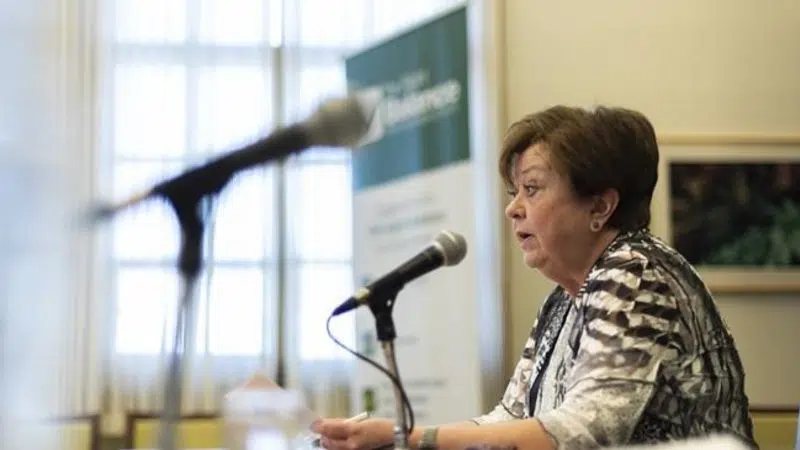
No tax hikes in Saskatchewan budget, but cash for mental health
REGINA — The Saskatchewan government is holding the line on taxes as it returns to a balanced budget that provides funding for mental health, volunteer firefighters and intersection safety.
Finance Minister Donna Harpauer tabled her government’s 2019-20 spending plan on Wednesday that, for the first time in years, predicts a surplus. It’s forecasting $34 million more in revenue than in expenses.
“It’s the right balance to keep our economy strong,” Harpauer said during a news conference.


